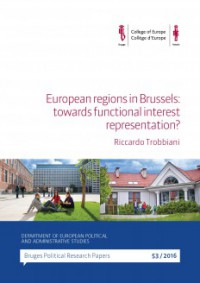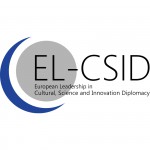European Regions in Brussels: Towards Functional Interest Representation?

Opportunities structures for participation in EU policy-making are characterised by the inefficiency of institutional channels of territorial representation and the progressive inclusion of broad civil society in new systems of consultation and cooperation with EU institutions. Recent Multilevel Governance literature has recognised an increasing convergence in strategies of territorial and functional actors to respond to these challenges. Nevertheless, it has neglected the partial shift of European regions from territorial institutional representation to lobbying strategies based on acting as intermediaries for functional interests. Through strong cooperation with the private sector, regions go beyond their purely institutional roles, partly presenting themselves as actors of functional representation and thus playing by the same rules of most lobbying actors in Brussels: providing specialised and genuine information to EU institutions in exchange for inclusion in the policy-making process.


